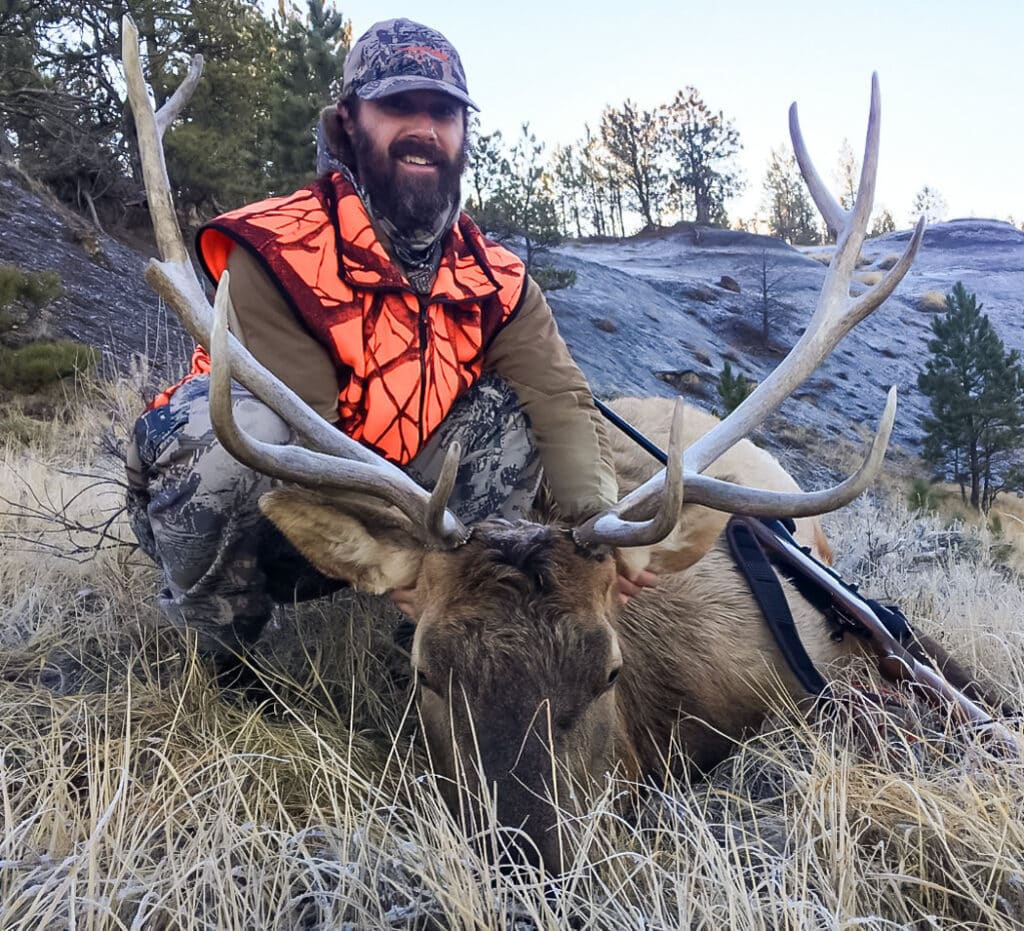Southwestern Montana is a patchwork of public and private land. While many people consider our public forests and mountain peaks to be pristine wildlife habitat, private lands consistently harbor abundant populations of wildlife and provide critical habitat for wintering big game. Pronghorn, in particular, typifies the relationship that wildlife has with private land. Year after year, our resident antelope completes a roughly 200 mile round trip journey from wintering grounds in the Beaverhead River watershed, to higher-elevation meadows nestled along the continental divide south of Anaconda in the summer. This migration route, one that has been used by generations of pronghorn, presents barrier after barrier with the most prominent being fences.
Pronghorn, like all ungulates, struggle to overcome the thousands of miles of fence in our valleys. Where elk and mule deer have evolved in a way that allows them to bound over fences in a single leap, pronghorn have evolved to crawl below. That makes this species particularly vulnerable to fencing. Luckily, biologists and wildlife managers have put their heads together to develop wildlife-friendly fence modification standards that both enable pronghorn to move freely while also keeping livestock in their pastures. Now, after years of studies, pronghorn movement data has shown us exactly where we need to focus our efforts and wildlife conservationists are chomping at the bit to make a change.
That’s why the National Wildlife Federation, our national partner in conservation, is now spearheading efforts to modify fences across southwest Montana. Through partnerships with the Montana Wildlife Federation, 2% for Conservation, The Nature Conservancy, Backcountry Hunters and Anglers, Montana Fish, Wildlife, & Parks, the Wild Rockies Field Institute, the Rocky Mountain Elk Foundation, the Bureau of land Management, and, most importantly of all, willing private landowners, NWF is reconnecting southwest Montana. Volunteers from across Montana are chipping in to change the landscape and join together under the banner of conservation.
MWF was fortunate enough to be able to come out for a long day pulling fences, rolling barbed wire, and ripping posts out of the compacted prairie soil and, while we were able to get a significant chunk of fence pulled, that’s not what this project was really about. This project wasn’t even just about the pronghorn or wildlife in general. It’s about proving the collaborative nature of conservation in Montana. Volunteers, agency staff, nonprofits, and landowners working side by side, day in and day out is the Montana way. If good fences make good neighbors then it’s time to get to work.
By Montana Wildlife Federation Western Montana Field Coordinator Eric Clewis

